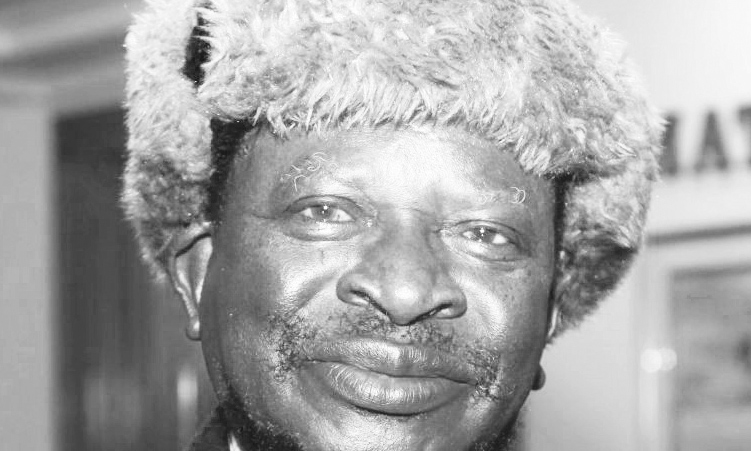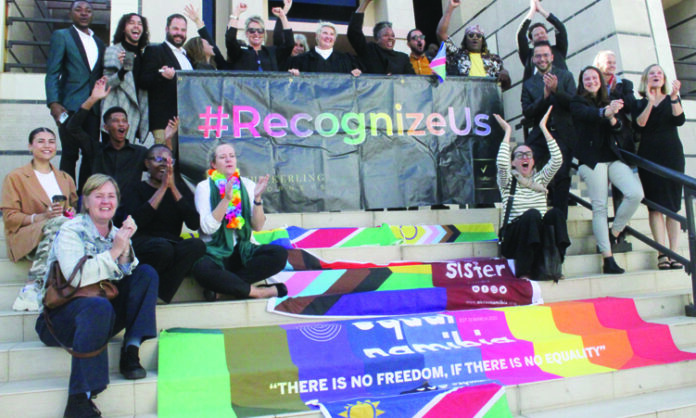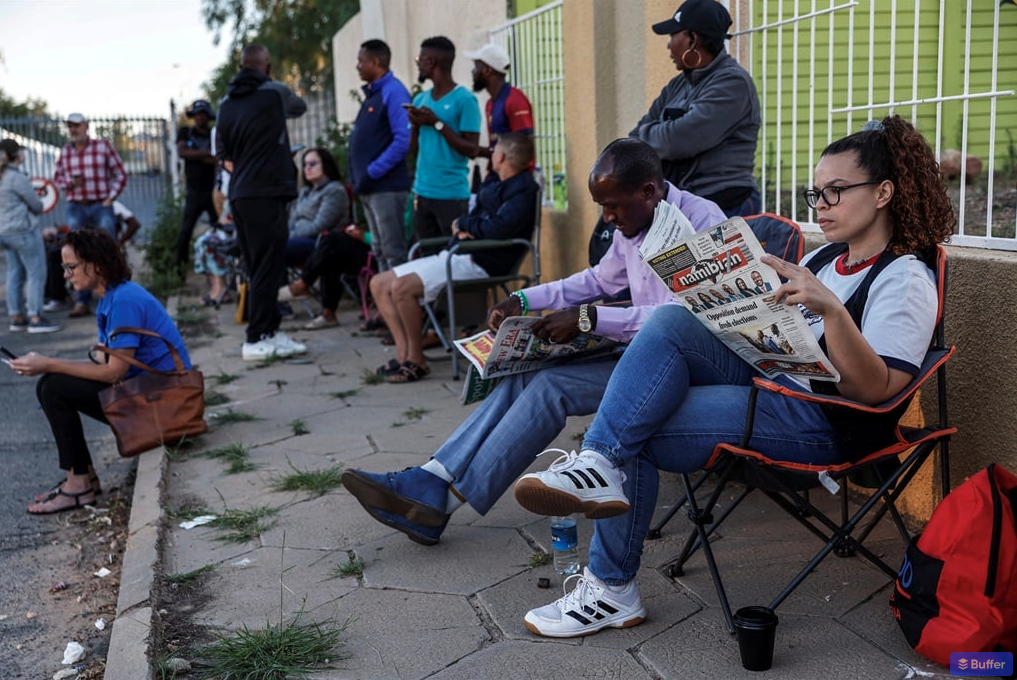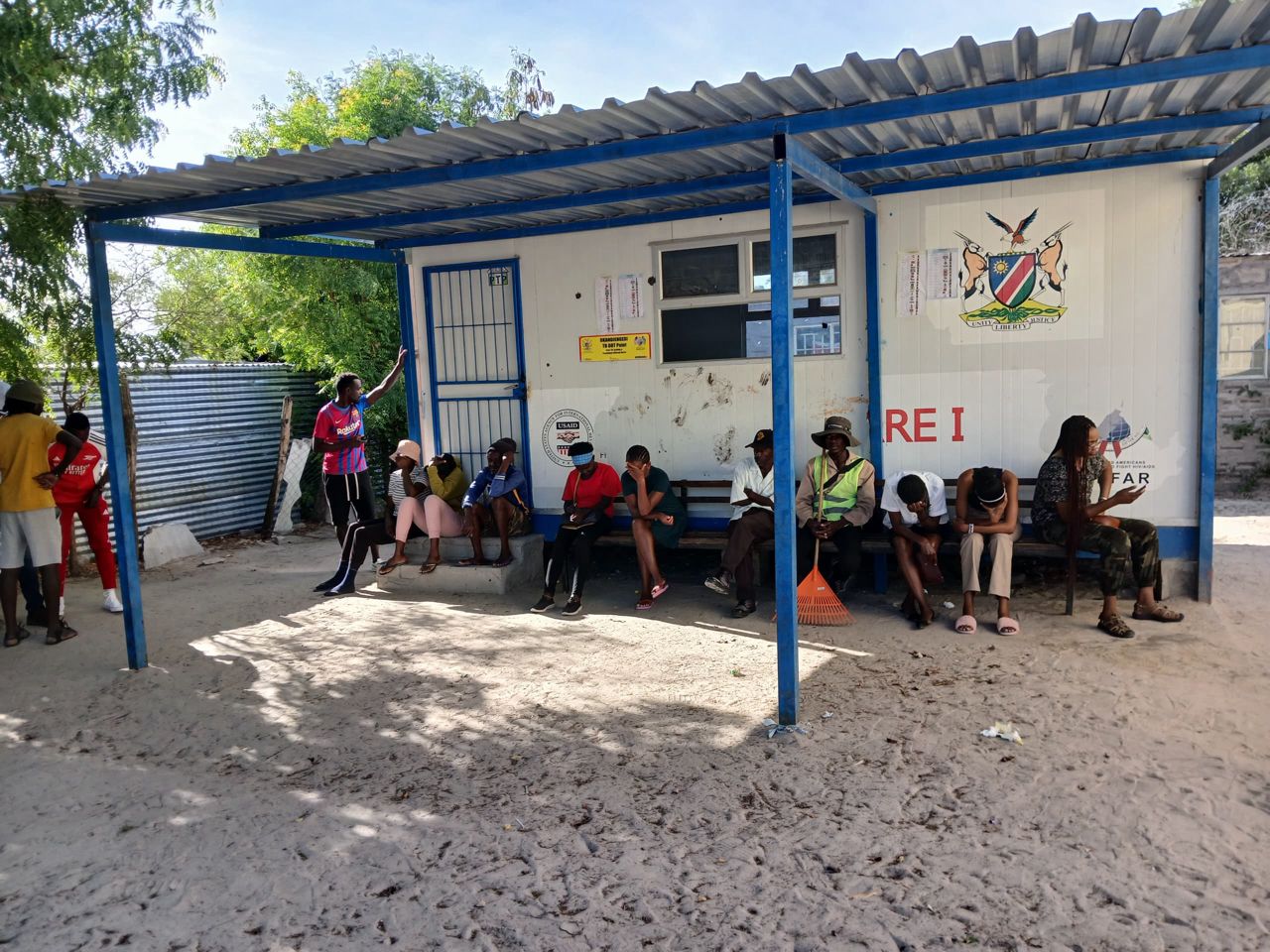The rights organistion Equal Namibia plans to take legal action over bills that change the definition of the term “spouse” and amend the Marriage Act of 1961 to block the recognition of same-sex marriage in Namibia.
Omar van Reenen, the organisation’s campaign manager, says if president Hage Geingob signs these bills into law, the organisation will take legal action.
“If the president doesn’t sign the bills, it goes straight to the parliament, and the parliament will vote on it again, and that means we’ll go to court again.
“These bills are heading to court because we can’t leave such a big threat to fundamental rights,” Van Reenen says.
The National Assembly on Monday passed the private member’s bills, and it is now be up to Geingob to sign or reject them.
“It is unconstitutional […] and it doesn’t just target our community, but our allies as well,” Van Reenen says.
Swapo backbencher Jerry Ekandjo earlier this year introduced a bill on the definition of “spouse”, invoking Articles 81 and 4 of the Constitution, to contradict a decision of Namibia’s Supreme Court on same-sex marriage.
He also tabled a bill to change sections of the Marriage Act.

The bill further seeks to prohibit same-sex marriage and the solemnisation of same-sex marriages, and to block the official recognition of same-sex marriages in Namibia.
“Equal Namibia strongly condemns the recent unanimous agreement by the National Assembly of Namibia to pass amendments criminalising same-sex marriage,” Van Reenen says.
The organisation also criticises the parliamentarians in the National Assembly who allowed the bills to pass.
“These bills are wholly unconstitutional and will fail in court. But it proved that this is a legislature which is hell-bent on violating their oath of office for cheap campaign points.
Equal Namibia is a youth-led social movement for equality fighting to end state-sanctioned homophobia and discrimination.
The bills were introduced in reaction to a Supreme Court ruling in which the Namibian government was ordered to recognise two same-sex couples’ marriages that were validly concluded outside the country.
“We urge president Hage Geingob to carefully consider the implications of these amendments for our democracy, Constitution, and the values we hold dear as a nation,” the organisation says.
Lawyer Carli Schickerling, who represented Namibian citizen Johann Potgieter and his South African husband, Daniel Digashu, and German citizen Anita Seiler-Lilles in the case in which the Supreme Court gave its judgement, says: “It’s not nice knowing we fought for seven years to get to a point where the parliament, instead of hearing the Supreme Court, decided to try and circumvent the judgement and stick to their discriminatory ways.”
She says Namibia could have made progress on legislation similar to that of South Africa by embracing everyone in society. “But we will not stop fighting – whatever it takes,” she says.
Earlier this year, ombudsman Basilius Dyakugha advised people who are against the bills to wait until the laws are passed and then approach the Supreme Court to invalidate them if they have grounds to prove their rights are being violated.
Stay informed with The Namibian – your source for credible journalism. Get in-depth reporting and opinions for
only N$85 a month. Invest in journalism, invest in democracy –
Subscribe Now!






